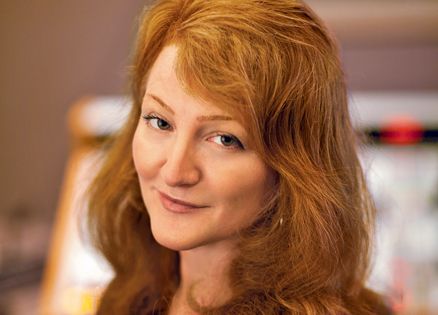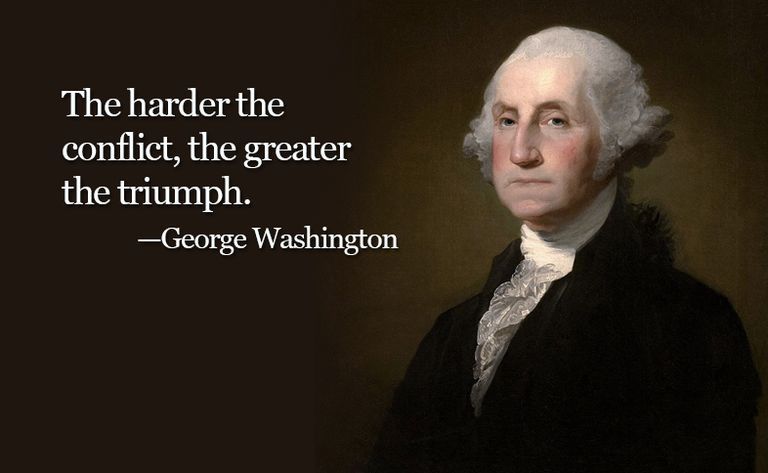I believe in the power of words and in conversation on the most wondrous mysteries of life: hope, love, faith, the intersection of science and religion. For a dozen years I’ve hosted a radio show, called On Being, where I’ve had as my guests physicists, monks, psychologists, ministers, novelists, poets, musicians.
I talk to them about their spiritual lives and how this echoes in the work they do. I’m as fascinated by the questions they ask as the answers they give. If the tables were turned and someone were to ask about my journey, I’d tell them who has inspired me.
“Jesus loves me, this I know, for the Bible tells me so.”—Anna Bartlett Warner
I grew up in Oklahoma, the granddaughter of a Southern Baptist preacher whom I called Gaggy. He was funny. He told jokes and laughed easily. Even as he preached hellfire and brimstone, he had a sense of play. He was a man of God with a sense of humor—and to this day that is a combination I admire and seek out.
Though he had only a third-grade education, my grandfather possessed a prodigious intellect. His Bibles were passed down to me—mighty leather-bound King James versions with gossamer-thin pages and passage after passage marked with notes, annotations, cross-references, every margin full of observations that speak to a love for the life of both the mind and the soul.
Once in the summer while I was helping him clean out a shed on the grounds of a mission church, I stumbled across a large, dark coiled snake. I raced out, screaming. Gaggy chased the snake into the open with a hoe and it reared up—in my memory it was nearly as tall as him.
It became an epic battle in my mind’s eye: the preacher and the serpent, salvation and damnation facing off. After a few heartstopping swings, Gaggy severed the snake’s head. Salvation won.
My grandfather’s rock-solid faith has been my spiritual inheritance. I learned to trust in a sense behind the universe. I learned to look for grace and for truths that revealed themselves. Above all, I understood belovedness to be woven into the very fabric of life.
I still love to listen to the hymns he sang, like “Jesus loves me, this I know…” This love of God was the antidote to any terrors of this world, even snakes.
“I’m still discovering right up to this moment, that it is only by living completely in this world that one learns to have faith…. In so doing we throw ourselves completely into the arms of God.”—Dietrich Bonhoeffer
Bonhoeffer was a pastor and pacifist, born into a prominent German family. He helped found the Confessing Church, the center of Protestant resistance to the Nazi regime, and led an alternative seminary.
He spoke out against anti-Semitism and was imprisoned during the war. Then his involvement in the July 20, 1944, plot to kill Hitler was discovered and he was prosecuted for it and hung just weeks before the collapse of the Reich.
I first read Bonhoeffer when I was in Germany in the 1980s. I had gone there as a college student, then a Fulbright scholar, and finally as a freelance journalist. I ended up assisting the U.S. ambassador.
I sat around an impressive conference table with men (mostly) who discussed nuclear weapons and how the world might be saved from their devastation. At the same time I made friends with East Germans on the other side of the Berlin Wall.
Reading Bonhoeffer and seeing firsthand the residual effects of World War II reminded me how important it was for people of faith in any era to speak out against injustice, throwing themselves “into the arms of God,” as Bonhoeffer would put it.
The greater the injustice the louder we must speak and the more passionately we must live.
“Feed my lambs…Tend my sheep…Feed my sheep.” —John 21:15–17
I quit my job in Germany, put my furniture into storage and lived out of a suitcase for two years in Spain and England. I read the Bible in a new, more open way than I had as a child. I came to see that if you sit with the Bible stories, pick over them, retell them, they begin to grow.
In other words, if I wrestled with them, as my grandfather did, a blessing would come.
I married a Scotsman, Michael Tippett, and we moved to the States, where I enrolled in the Yale Divinity School. One summer Michael and I signed up to run a children’s day camp in South Philadelphia called Camp Get-Along, a sweetly named effort to provide a summer haven for inner-city kids.
We arrived to discover that the budget existed only on paper. The steering committee that had hired us was fraught with petty arguments. For a time we ate and planned camp activities in the tiny office at the church that hosted us, sleeping on the floor. We felt hapless and sometimes hopeless.
We came close to quitting. The only thing that stopped us were the visits of a little boy named Ted. Three times he banged on the door of that dilapidated church. Without smiling he asked, “Is there going to be a camp here? Can I come?” The expectant expression on his face kept us going.
In the end, the camp was made possible with the help of some single mothers and teens and other hardworking angels. It was chaotic and gritty and miraculous.
In the gospel of John, Jesus appears to a few apostles after the resurrection, including Peter. Peter is the most hapless disciple, always getting things wrong. He has nevertheless been anointed by Jesus to become the “rock” of the church.
On this occasion, at a meal, Jesus asks Peter, “Do you love me?” Peter answers each time, “Yes, Lord, you know that I love you.” Jesus responds, in turn, “Feed my lambs,” “Tend my sheep,” “Feed my sheep.”
I have a picture of Ted from that summer that I keep on my desk. He is swimming and only his head is visible above the water. He is smiling the beautiful smile he unwrapped for us the second week of camp.
His face is set off by what looks like Mediterranean blue, though it was only the public pool across the street from the church. Ted’s face remains the face of Christ for me: nine years old, black, delightful, heartbreaking, his smile a grace.
Ora et Labore, or “Pray and Work”—from the Rule of St. Benedict
Growing up Protestant in Oklahoma, I knew little about Catholicism or monasticism. But after seminary I was invited to a conference at a Benedictine monastery, Saint John’s Abbey in Collegeville, Minnesota. These monks were people after my own heart, contemplative and industrious at once.
Ora et Labore is their motto—pray and work. They live and teach, publish and pray on prairie land their German forebears settled in 1856 in the midst of a devastating plague of grasshoppers.
They believed in ecumenical dialogue and they did it through a straightforward approach. People told their stories.
Sitting around a table that seemed a huge contrast to those self-important strategic conference tables of Berlin, we engaged in the great theological questions by simply looking at our lives. No abstractions about God. Doctrine came alive through narrative. We were different, but we were no longer divided.
It made me wonder, could conversations like these, conversations that increased understanding and brought divisions down, happen in a larger context? What if there were a radio show devoted to these conversations, with just one guest for each hour so we could really talk in depth?
From the Benedictines I learned that everyone has observations to make about the nature of God, and that when people talk about how the divine intersects and interacts with their lives, they have fascinating things to say.
In 1998 I pitched this wild idea to Minnesota Public Radio. We started as a monthly national program and then went weekly.
“You were made and set here to give voice to this, your own astonishment.”—Annie Dillard
I read that line in an essay by Dillard years ago, and it has stayed with me ever since. The show seems to give voice to the astonishment that people experience as they learn what they are here for—when, you might say, God moves in their lives.
Their stories are a continual inspiration, surprise and challenge to me—and to our listeners. But perhaps I shouldn’t be surprised. After all, finding my own way into a life of listening was completely unexpected. And God has moved astonishingly in my life too.
Download your FREE ebook, The Power of Hope: 7 Inspirational Stories of People Rediscovering Faith, Hope and Love





